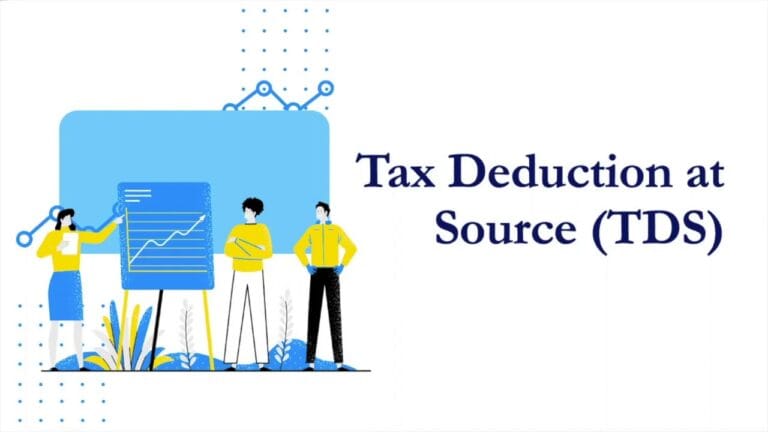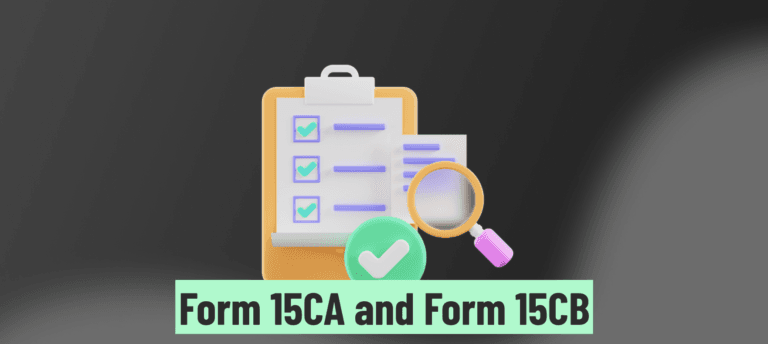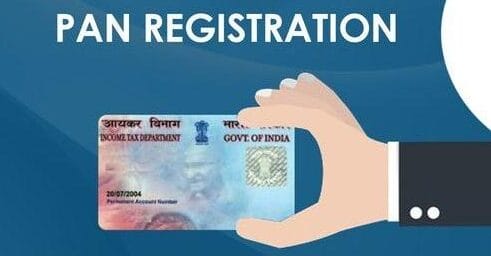Tax Deduction and Collection Account Number (TAN) is a unique 10-digit alphanumeric code issued by the Income Tax Department to entities responsible for deducting tax at source (TDS) or collecting tax at source (TCS). Here’s a detailed guide on TAN registration process:
Purpose of TAN
- TDS/TCS Compliance: TAN is mandatory for entities deducting or collecting tax at source as per the provisions of the Income Tax Act, 1961.
- Identification: TAN facilitates identification of taxpayers responsible for deducting and remitting TDS/TCS to the government.
Entities Requiring TAN
- Employers: Companies, firms, individuals, or any entity making salary payments on which TDS is applicable.
- Businesses: Entities making payments such as interest, rent, commission, etc., on which TDS is applicable.
- Government Agencies: Central and State Government departments deducting TDS.
Steps for TAN Registration
- Form 49B: Obtain Form 49B from the official website of NSDL (National Securities Depository Limited) or authorized TIN-Facilitation Centers (TIN-FCs).
- Fill Form 49B: Provide details such as name and address of the deductor, type of deductor, category, principal business activity, etc.
- Submit Application: Submit the filled Form 49B along with required documents to any authorized TIN-FC or online through NSDL website.
- Payment of Fee: Pay the applicable fee for TAN registration. As of now, the fee for TAN application is Rs. 65 + applicable GST.
- Acknowledgment: After submission, an acknowledgment containing a 14-digit acknowledgment number is issued. This can be used to track the status of the application.
- Verification and Processing: The application is processed by NSDL. If all details are found to be in order, TAN is allotted and communicated to the applicant.
- Receipt of TAN: Once allotted, the TAN is communicated via email to the registered email ID and by post to the registered address.
Documents Required for TAN Registration
- Identity Proof: PAN card copy of the deductor.
- Address Proof: Address proof of the deductor’s registered office.
- Incorporation Certificate: In case of companies or LLPs.
- Partnership Deed: In case of partnership firms.
- Memorandum of Association (MOA) and Articles of Association (AOA): In case of companies.
- Board Resolution: Authorizing the applicant to apply for TAN.
Importance of TAN
- Legal Requirement: It is mandatory under the Income Tax Act for entities responsible for deducting or collecting TDS/TCS.
- TDS Compliance: Facilitates smooth deduction, payment, and filing of TDS/TCS returns.
- Taxpayer Identification: Enables the government to identify entities responsible for deducting or collecting taxes at source.
Renewal of TAN
TAN once obtained does not require renewal. However, any changes in details should be updated promptly using Form 49B.
TAN registration is essential for entities to comply with TDS/TCS provisions under the Income Tax Act. By following the prescribed steps and submitting accurate information, entities can obtain TAN and fulfill their tax obligations effectively. Professional assistance can be sought to navigate the registration process and ensure compliance with regulatory requirements.
At Ujjwal Gupta & Co
We, at Ujjwal Gupta & Co, are dedicated to delivering personalized, high-quality solutions tailored to meet your financial and business needs. With our team of professionals and a client-first approach, we ensure that every challenge is met with expert guidance and strategic insight.
We are dedicated to ensuring your business’s success by providing best service practice available in the industry and that too at a cost effective pricing. Our team of experts is excited to work with you and provide the support you need to thrive in the Indian business landscape.
Our only motive is to create Value for Our Clients and accordingly, have a Client Value System at our Office.
So, let us help you navigate the complexities of finance and compliance, empowering you to focus on what matters most — growing your business. Get in touch today, and take the first step towards financial peace of mind.
TAN (Tax Deduction and Collection Account Number) is a unique 10-digit alphanumeric code required by all entities responsible for deducting or collecting TDS (Tax Deducted at Source) or TCS (Tax Collected at Source). It is mandatory to quote TAN in all TDS/TCS returns, challans, and certificates.
Every entity or person who is responsible for deducting or collecting TDS or TCS under the Income Tax Act must obtain a TAN. This includes employers, companies, partnerships, proprietorships, and individuals subject to TDS deduction for specified payments like salaries, rent, professional fees, contractor payments, etc.
TAN can be applied for both online and offline:
- Online: Through the NSDL e-Governance portal (https://www.tin-nsdl.com/). Fill out Form 49B and submit the application online, followed by making the payment.
- Offline: By submitting a filled-out Form 49B to the TIN Facilitation Center (managed by NSDL) along with the applicable fee.
Form 49B is the application form required to be filled for the allotment of a TAN. It includes details like the applicant’s name, address, type of deductor (e.g., company, individual, government agency), and the contact details of the responsible person.
Yes, the processing fee for TAN registration is ₹65 (including GST). This fee can be paid online through net banking, debit card, or credit card, or offline via demand draft.
No specific documents are required for TAN registration. The application must be filled with accurate details of the deductor, and upon submission and payment, a 10-digit TAN will be issued. However, you may need a valid Digital Signature Certificate (DSC) for online submission.
TAN is generally allotted within 7 to 15 working days from the date of application. If applying online, the acknowledgment and the TAN allotment details can be tracked on the NSDL portal. The physical TAN allotment letter will be sent to the address mentioned in the application.
TAN is a 10-character alphanumeric number where:
- The first four characters are letters (the first three letters represent the jurisdiction code, and the fourth letter is the initial of the name of the deductor).
- The next five characters are numeric.
- The last character is a letter (checksum).
For example: DELH12345A.
No, PAN (Permanent Account Number) and TAN are two different numbers serving different purposes. TAN is mandatory for deducting or collecting TDS/TCS and should be quoted in all TDS/TCS-related transactions, including filing returns, challans, and certificates. PAN cannot be used in place of TAN for these purposes.
If TDS is deducted without obtaining a TAN, the deductor can face penalties, such as:
- A penalty of ₹10,000 under Section 272BB for failing to obtain a valid TAN.
- Non-compliance in TDS returns and payments without TAN can lead to further delays in processing, penalties, and interest charges.
Why Choose UGC?

Client Centric Approach
Client is the key driver of our service offerings. Our approach to service offerings is based on a client centric and customized approach. Our specialized teams are a mix of technical and industry experience in order to serve clientele for their specific needs.

Team Work
We have built high performing teams supported by strong work ethic. Our team is a mix of experts, professionals and support staff from technical and varied academic, social and ethnic backgrounds. We believe diversification plays a vital role in motivating the team.

Quick Turnaround
We always endeavour for a quick turnaround time to serve our clientele. We are supported by an experienced and client focussed support teams to offer timely services to our clientele. In case of any business exigencies and time sensitive service requirements, you can always count on us.

Open Communications
We believe that open communication is the core principle in order to demonstrate trust, build long lasting and valuable relationships with clientele. We are committed to ensuring transparency in communication, service offerings and delivery. We provide professional services to our clients.

Client Value System
We value for the Client time and thus, we offer services that are value for money. Quality professional services are provided to our clients, so that they are able to achieve their desired results. We are a quality trademark in the industry and thus, our clients count on us always.

Quality in Delivering Work
Our service offerings are driven by quality and reviews at every level. We strive to provide a qualitative and value-added delivery to our clientele. At all times, we endeavour to provide exceptional client service by meeting client expectations and driving client satisfaction.




















